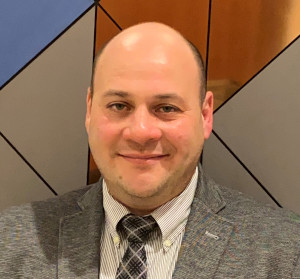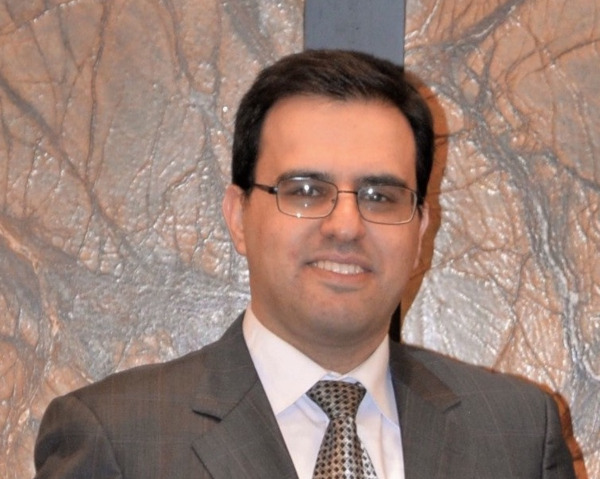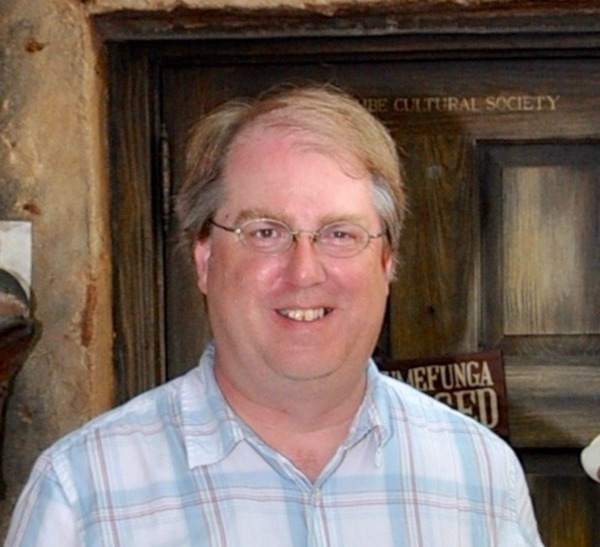Lakehead University and TBRHRI scientists receiving more than $1.3 million for research
Lakehead University and TBRHRI researchers are receiving more than $1.3 million from the Natural Sciences and Engineering Research Council of Canada for 16 exciting research projects.

Dr. Sam Salem, Associate Professor in Civil Engineering at Lakehead University, is receiving a $130,000 Discovery grant to test the fire performance of Timber-Concrete Composite systems in mass timber buildings over five years.
“In this composite system, the advantageous mechanical properties of both materials, timber and concrete, are efficiently utilized and therefore several advantages can be achieved for a more robust floor system compared to timber floors,” Dr. Salem said.
Some advantages of utilizing timber-concrete composite floor systems include greater strength, durability, and much improved acoustics and vibration performance characteristics.

Dr. Amir Ameli, Assistant Professor in Electrical Engineering Department at Lakehead University, is receiving a total of $152,500 to facilitate a smooth transition to more-secure power grids by tackling cyber-security challenges faced by their protection systems.
“The recent trend to expand the use of information technology in power networks has made them potentially vulnerable to cyber attacks,” Dr. Ameli said.
“Protection systems are among the most critical cyber-vulnerable components in power grids, as they directly affect the integrity and stability of power systems.”
Dr. Michael Campbell, Assistant Professor in Chemistry and Lakehead University - Thunder Bay Regional Health Research Institute Research Chair, is receiving a total of $132,500 to spend five years developing new methods for the cyclotron production of radionuclides and determining reactions and tools that will improve access to radionuclides for use in research, industry, and health care.

“When introducing a radionuclide into a small molecule or protein for labeling as an imaging probe, you are working against the clock,” Dr. Campbell said.
“The isotope is always decaying so time spent performing the synthesis and purifying the product will negatively impact the yield of the tracer.”
Many of these reactions require some purification step to remove excess reagents and catalysts. Dr. Campbell’s research program will develop solid phase synthesis reagents and procedures to minimize reaction time and work to reduce the purification requirements.
“Dr. Campbell is a key contributor to our health research program that is vital to advancing our academic mission and even more importantly, to improving the health of the population,” said Dr. Rhonda Crocker Ellacott, President and CEO of the Thunder Bay Regional Health Sciences Centre and CEO of the Thunder Bay Regional Health Research Institute.
“I would like to thank NSERC for recognizing the potential of Dr. Campbell’s research. Their generous support is vital in allowing talented researchers like Dr. Campbell to make great strides forward with their research which can help us find better ways to care for patients.”
Dr. Andrew P. Dean, Lakehead University’s Vice-President, Research and Innovation, thanked NSERC for its continued support of the university’s scholars in the Natural Sciences and Engineering fields.
“Discovery grants are exactly that, they provide multi-year funding for our scientists to explore fundamental research questions that lead to great discoveries.
“I would also like to acknowledge NSERC for their understanding of the impact on research productivity during this pandemic and NSERC’s willingness to provide current grant holders with time extensions with additional funding. This forward thinking approach has certainly been appreciated by the research community,” Dr. Dean said.
In 2020/21, Lakehead University received nearly $2 million in assistance from the Research Support Fund to support the indirect costs of research, which includes costs for supporting the management of intellectual property, research and administration, ethics and regulatory compliance, research resources, and research facilities.
New 2021 NSERC Discovery and Research Tools and Instruments Grants Awarded – Total: $1,328,053
Discovery Development Grants (two-year grants)
Dr. Mark Gallagher, Physics, “Scanning tunneling microscopy studies of the on-surface synthesis of molecular based nanomaterials”, $30,000.
Dr. Sabah Mohammed, Computer Science, “Containerization and Integration of Remote Patient Monitoring and e Consultation Systems”, $30,000.
Discovery Grant - Individual Operating Grants (five-year grants)
Dr. Amir Ameli, Electrical Engineering (Barrie), “Developing Cyber-Secure and Resilient Protection Schemes in Power Networks”, $140,000.
Dr. Ehsan Rezazadeh Azar, Civil Engineering, “Automated data collection and machine learning methods for civil infrastructure condition assessment in sparsely inhabited regions of Canada”, $130,000.
Dr. Michael Campbell, Chemistry and Lakehead-TBRHRI Research Chair, “Radiochemical methods for labeling and isotope production”, $120,000.
Dr. Dariush Ebrahimi, Computer Science, “Smart Iot-Based Systems: Deployment and Management”, $145,000.
Dr. Eltayeb Mohamedelhassan, Civil Engineering, “Electrokinetic-assisted phytoremediation of polluted sites", $130,000.
Dr. Sam Salem, Civil Engineering, “Fire Performance of Timber Concrete Composite (TCC) Systems in Mass Timber Buildings”, $130,000.
Dr. Ali Tarokh, Mechanical Engineering, “Control of Complex Turbulent Flow”, $135,000.
Dr. Wilson Wang, Mechanical Engineering, “Intelligent Diagnostics and Prognostics of Electric Vehicle Powertrains”, $230,000.
Discovery Launch Supplements
Dr. Amir Ameli, Electrical Engineering (Barrie), “Developing Cyber-Secure and Resilient Protection Schemes in Power Networks”, $12,500.
Dr. Michael Campbell, Chemistry, Lakehead University-TBRHRI Research Chair “Radiochemical methods for labeling and isotope production”, $12,500.
Dr. Dariush Ebrahimi, Computer Science, “Smart Iot-Based Systems: Deployment and Management”, $12,500.
Dr. Ali Tarokh, Mechanical Engineering, “Control of Complex Turbulent Flow”, $12,500.
Research Tools and Instruments (RTI) Grants (one-year grants)
Dr. Jinqiang Hou, Chemistry, Lakehead University-TBRHRI Research Chair “A Microwave System for Medicinal Chemistry and Radiochemistry Research”, $39,451.
- Co-applicants
o Dr. Michael Campbell, Chemistry, Lakehead University-TBRHRI Research Chair
o Dr. Justin Jiang, Chemistry
Dr. Baoqiang Liao, Chemical Engineering, “A Refrigerated High Speed Centrifuge for Water Science and Technology Research”, $18,602.
– 30 –
Media: For more information or interviews, please contact Brandon Walker, Media, Communications and Marketing Associate, at (807) 343-8177 or mediarelations@lakeheadu.ca.
Lakehead University is a fully comprehensive university with approximately 9,700 full-time equivalent students and over 2,000 faculty and staff at two campuses in Orillia and Thunder Bay, Ontario. Lakehead has 10 faculties, including Business Administration, Education, Engineering, Graduate Studies, Health & Behavioural Sciences, Law, Natural Resources Management, the Northern Ontario School of Medicine, Science & Environmental Studies, and Social Sciences & Humanities. Lakehead University’s achievements have been recognized nationally and internationally, including being ranked, once again, among Canada’s Top 10 primarily undergraduate universities in Maclean’s 2021 University Rankings; as well as included in the top half of Times Higher Education's 2020 World Universities Rankings for the second consecutive year, and 99th among 1,115 universities from around the world in THE's 2021 Impact Rankings (which assesses institutions against the United Nations’ 17 Sustainable Development Goals). Visit www.lakeheadu.ca.

